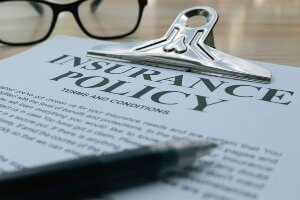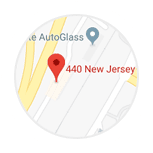What if an At-Fault NJ Driver Refuses To Contact Their Insurer?
Posted on behalf of James Lynch on September 15, 2023 in Car Accident News. Updated on January 3, 2024
 Although New Jersey is a no-fault state and crash victims can seek compensation from their own insurance policies, they may still need to file claims against the other driver’s insurance policy.
Although New Jersey is a no-fault state and crash victims can seek compensation from their own insurance policies, they may still need to file claims against the other driver’s insurance policy.
Unfortunately, the at-fault driver may decide to not cooperate with his or her insurance company. He or she might not contact or answer the insurance company’s phone calls or emails. Actions like these could put your liability insurance claim in jeopardy.
Lynch Law Firm PC’s experienced lawyers discuss your legal options in this type of situation, including whether the other driver’s insurance company could void coverage. Our New Jersey car accident attorneys have obtained millions* from auto insurance companies in a variety of cases. There are no upfront costs with our services.
Call today to learn how our firm may be able to help. Phone: (800) 518-0508.
Why the Liable Insurer Needs To Speak to the At-Fault Driver
Most car insurance policies contain a clause that requires cooperation with the insurance company. Policyholders must call their insurance company after a crash to tell them what happened.
Insurance companies put these clauses in their contracts for various reasons:
Police Reports Might Be Wrong
Sometimes police reports contain errors. The officer may have gotten the vehicles mixed up, assigning fault to the wrong driver. The policyholder may have other good reasons to dispute the responding officer’s assessment of fault.
Insurance companies have the right to investigate claims to determine if they may be liable for damages. Part of that investigation involves speaking with their policyholder about the crash.
The Policyholder May Have Spoken With Witnesses
Sometimes the driver you want to file a claim against spoke to witnesses at the scene. Witnesses may have seen or noticed things the other driver or the police did not. This information could help the insurance company determine if there is a valid claim or if there is reason to deny it.
The Accident Might Not Be Covered
Insurance companies are only obligated to provide compensation for damages and accidents that are covered by the policy. If their policyholder was driving for Uber of Lyft at the time of the crash, his or her personal insurance policy may not apply.
Insurers Have a Duty To Protect Their Policyholders
While this may sound backwards, the at-fault driver is technically the one seeking coverage. This means the at-fault driver’s policy is there to protect this person from having to use his or her own finances to pay for your damages.
Protecting a policyholder also involves shielding this person from invalid claims or claims that are not covered by the policy. However, the insurance company cannot adequately do this without the policyholder’s cooperation.
Should I Call the At-Fault Driver’s Insurance Company?
You may want to call the other driver’s insurance company to find out what is going on with your claim. However, it is best to let your attorney communicate with the other insurance company on your behalf.
There are various risks with crash victims calling at-fault drivers’ insurance companies. For example, insurance representatives can:
- Ask leading questions that cause you to say things that seem to imply you are at fault
- Cause you to contradict yourself over the course of one or more conversations, which could damage your credibility
- Get you to let your guard down and say too much about your injuries, such as making statements that downplay your injuries or make it sound like you are fully healed
The attorneys at Lynch Law Firm have many years of experience dealing with insurance companies and we know how to protect claims.
What Are Your Options For Recovering Compensation if the Other Driver Is Not Cooperating?
If you exchanged information with the other driver at the scene, you or your lawyer can call the driver to find out if they have spoken with their insurance company. You want to make sure the insurance company is being truthful about their policyholder not cooperating. Proof of text or email correspondence can help you and your lawyer dispute the insurance company’s claims about failing to cooperate.
However, things can get more challenging if the at-fault driver continues to fail to cooperate. If the insurance company has repeatedly attempted to contact this person, then it may be within its rights to void coverage. That would mean you would be unable to seek compensation from the insurance policy.
Filing an Uninsured Motorist Claim
If the other driver does not have insurance coverage, either because the policy lapsed or the insurance company voided coverage because of failure to cooperate, you may be able to use your uninsured motorist coverage.
Your insurance company may fight you on providing this coverage. They may even call the other driver or this person’s insurance company to avoid moving forward with your claim.
Using Collision Coverage
Collision coverage pays for damage to your own vehicle. This may be the last resort if you do not have uninsured motorist coverage.
What About Filing a Lawsuit?
New Jersey limits the ability of car crash victims to file lawsuits. However, even if you have the right to file a lawsuit against the other driver, this is usually not a viable option. Most people simply do not have the assets to pay for damages they caused others to suffer in a car crash.
Call Lynch Law Firm For Legal Help Following a Crash
New Jersey car crash claims can quickly become complicated, particularly if you need to seek compensation from the at-fault driver’s insurance company.
Lynch Law Firm has been taking on insurance companies and securing compensation for decades. We know how to build strong cases and we are prepared to go to court to secure the justice and compensation you need.
Our legal services are provided on contingency, so there is no upfront cost. Our firm does not get paid unless you receive compensation through a settlement or courtroom decision.
Give us a call today to learn more: (800) 518-0508.







